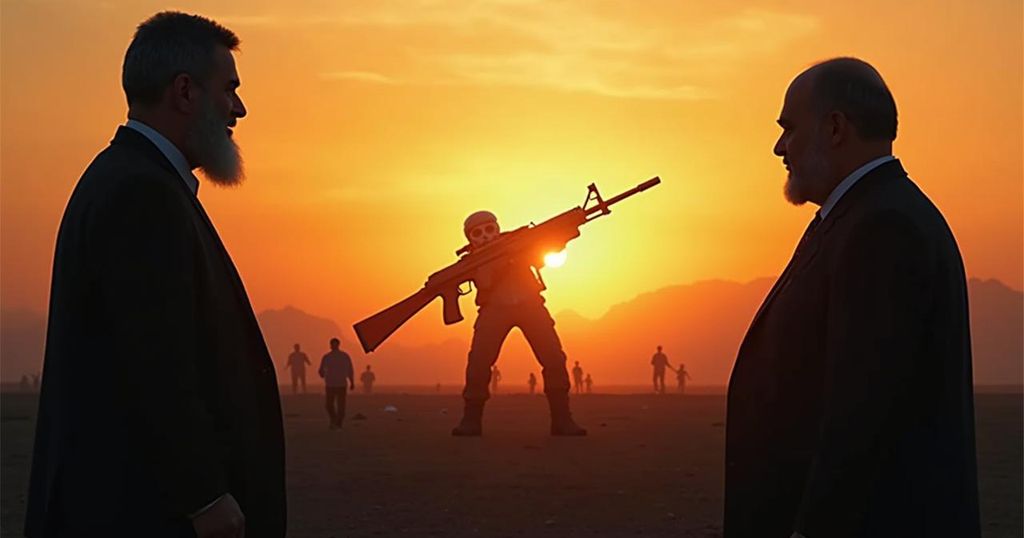Iran’s Calculated Retaliation Following Nasrallah’s Assassination: A Shift Towards Aggression

The assassination of Hizbullah leader Hassan Nasrallah has prompted Iran to abandon its previous stance of restraint, leading to a missile attack on Israel as a direct response. Military leaders in Iran argued for retaliation to protect the nation’s reputation and credibility, resulting in heightened tensions between Iran and Israel. President Pezeshkian’s reformist agenda faces significant challenges amid growing hardliner influence in the government.
The assassination of Hizbullah leader Hassan Nasrallah has marked a pivotal moment in Iranian politics, compelling the country’s military leadership to advocate for a retaliatory stance against Israel. Following the assassination last Friday, senior Iranian officials convened to plot a response, ultimately favoring a more aggressive military strategy contrary to the previously adopted posture of restraint advocated by reformist President Masoud Pezeshkian. This shift materialized on Tuesday when Iran launched approximately 180 ballistic missiles targeting Israel, raising tensions between the two nations to unprecedented levels. An Iranian official remarked that Nasrallah’s killing was perceived as the final provocation, leading Iran to conclude that Israeli aggression would not cease. Military leaders stressed that failure to retaliate would damage Iran’s credibility among its allies and exacerbate perceptions of its vulnerability. Ayatollah Ali Khamenei’s decision to endorse this aggressive response starkly contrasts the earlier diplomatic overtures by President Pezeshkian, who has faced increasing criticism from hardliners within the regime. As the conflict escalates, both sides brace for further military engagement, indicating a critical juncture in Iran-Israel relations.
The recent tensions between Iran and Israel have roots in a longstanding conflict, which has escalated in the wake of various military actions and political decisions. Following the election of President Masoud Pezeshkian, there was initial hope for a diplomatic thaw; however, Israel intensified its operations against Hizbullah, leading to significant Iranian military discussions and a subsequent shift towards aggressive retaliation. The killing of key figures within the context of this conflict has served as catalysts for hardline factions within Iran, who advocate for a more militant response to perceived threats. The current situation reflects the broader dynamics of Iran’s geopolitical positioning in the Middle East and the implications of its military strategies on its relationships, particularly with Israel and the United States.
In conclusion, the assassination of Hassan Nasrallah has incited a pivotal shift in Iran’s military policy, shifting from a cautious approach to one of active retaliation. This development signifies a critical moment in Iran’s foreign relations, affecting not only its stance towards Israel but also its internal political dynamics, with hardliners gaining traction against a reformist agenda. As both nations prepare for potential escalations in hostilities, the situation underscores the fragile balance of power in the region and the complexities of Iran’s national security strategy.
Original Source: www.irishtimes.com








